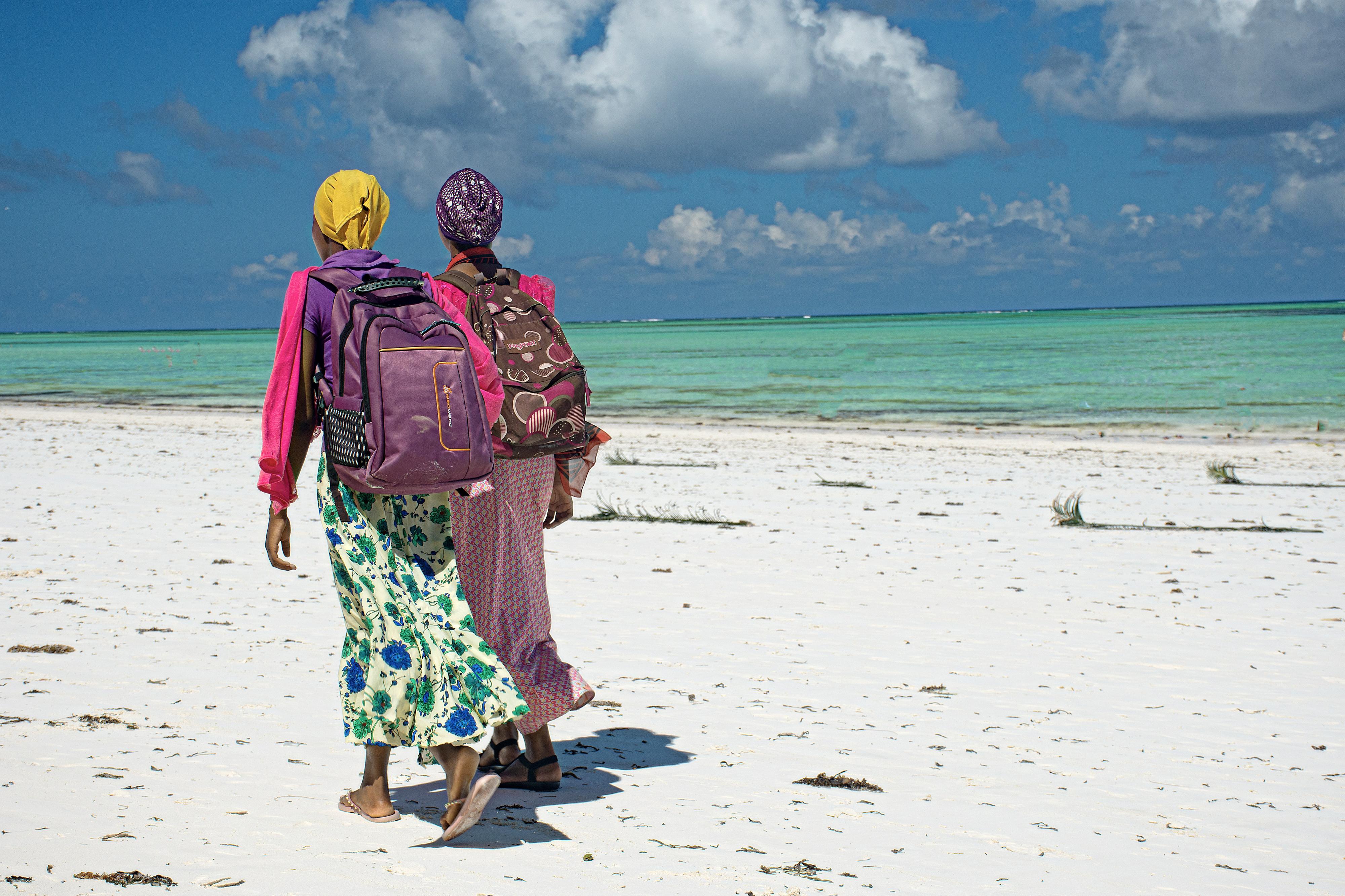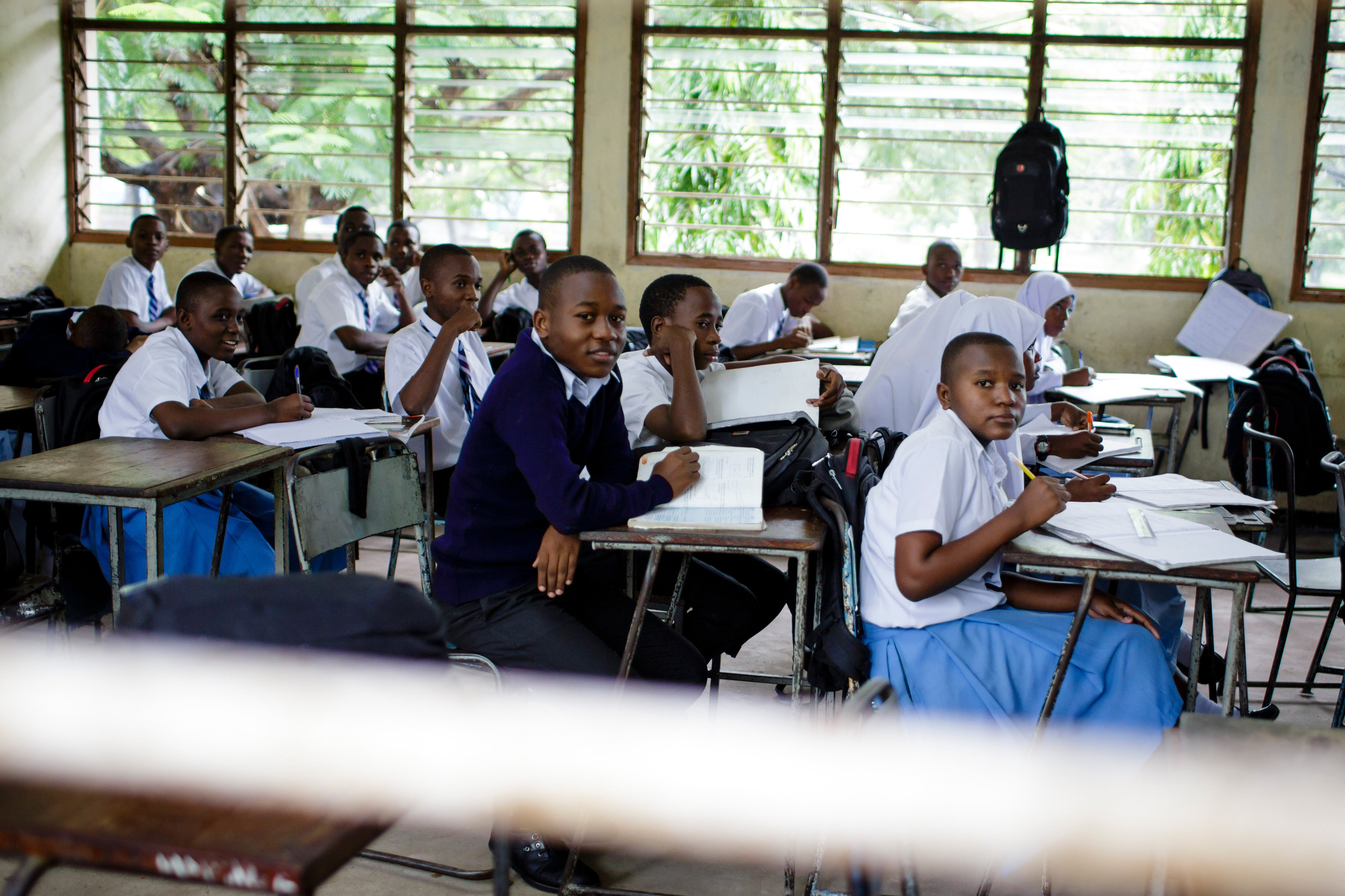Social situation Rapid population growth, lack of improvement in living conditions
Schoolgirls on their way to school on a beach on the island of Zanzibar, which is part of Tanzania.
Tanzania is one of the poorest countries worldwide and is ranked 165th out of 191 countries assessed in the United Nations Human Development Index (HDI). There is not much formal employment and despite visible development progress, the poverty rate is still high. One reason is continuing high population growth of around three per cent annually. The country recorded growth of almost 40 per cent between 2015 and 2025 – that is about 20 million people.
Education
School lessons in Dar es Salaam, the largest city in Tanzania
Tanzania has made significant progress on expanding school education. The total number of children who enrolled in school increased from 10.3 million in 2019 to 11.4 million in 2023. Nevertheless, the school enrolment rate fell in the same period from 95.3 to 86 per cent – and only about 77 per cent of children finish primary school. There is a lack of qualified teachers, and teaching and learning conditions are poor in the crowded and for the most part sparsely equipped schools. The illiteracy rate is almost 20 per cent.
Health
Despite the good progress that has been made in past years – for example with regard to reducing child mortality and the HIV infection rate – health care still has a lot of room for improvement. The situation is especially dire for women. Maternal mortality is at 432 deaths per 100,000 live births and many pregnant women only have limited access to high-quality prenatal care and skilled obstetric care. Even though demand is growing because of rapid population growth, public health expenditure has fallen in recent years. There is a huge lack of skilled workers, wage levels are low and health facilities are poorly equipped.
The Universal Health Insurance Act that was adopted in late 2023 marked an important step towards universal health care in the country. Among other things, the law in question stipulates mandatory health insurance for all people in Tanzania. In addition, a special fund is to provide support for poor households to help them finance the insurance premium.
Water supply
Diseases like diarrhoea and cholera, which are caused by unclean water, are widespread in Tanzania. While drinking water supply in cities has significantly improved in recent years, more than half of the people living in rural areas have to live without clean, hygienic water. Only about one third of the people in Tanzania have access to basic sanitation.
The main causes of these deficiencies are antiquated or non-existent infrastructure, inadequate management of the institutions responsible and huge population growth. In addition, water resources are under pressure. The unregulated use of water for agricultural and industrial purposes and for generating power is reducing the availability of water more and more, as is climate change.
As at: 17/11/2025

